Uncomfortable moment?published at 21:10 BST 25 August 2014
Mr Darling is taken to task by an audience member for "his Labour government" starting the privatisation of the NHS. An uncomfortable moment for the Better Together leader.
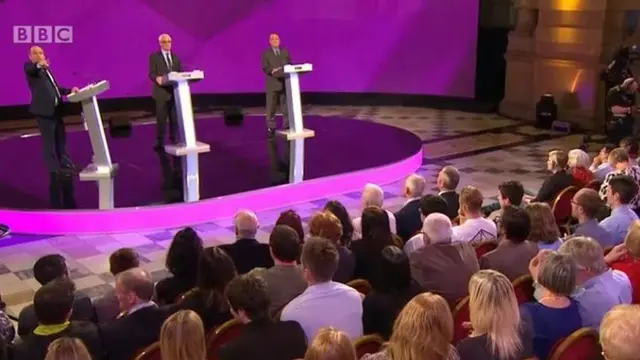
Alex Salmond & Alistair Darling went head-to-head in their second televised debate on Mon 25 Aug
In fiery exchanges, they clashed on currency, but also oil revenues, the NHS & Trident
The referendum on Scottish independence takes place on 18 September
Voters in Scotland will be asked: "Should Scotland be an independent country?"
Marianne Taylor, Steven Brocklehurst, Martin Currie and Camila Ruz
Mr Darling is taken to task by an audience member for "his Labour government" starting the privatisation of the NHS. An uncomfortable moment for the Better Together leader.

Observer columnist Kevin McKenna, external: Glenn Campbell playing a blinder too. Assured, sharp and knowledgeable...
gideonwilliams, external: Most impressed with Glenn Campbell so far - not at all overawed and putting both in their place. Conscious of the audience #bbcindyref
Kenny MacKenzie, external: #bbcindyref Glenn Campbell's having a good night. #NoNonsense
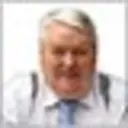 Brian Taylor
Brian Taylor
Political editor, Scotland
From the economy to public services - and the NHS.
Alex Salmond expands upon his argument that the NHS in Scotland is potentially jeopardised by the continuation of the Union.
It is not, he says, that Scotland can be forced to privatise the NHS - because control of the service is devolved.
The issue, he says, is that financial control does not ultimately lie in Scotland. If there is charging in England, for example, he says that reduces the scope of the public provision in England and, via Barnett, cuts the money available to Scotland.
Alistair Darling responds by accusing his rival of scare-mongering. He says some of the issues raised by the supporters of independence in this regard amount to complete fabrication.
 Emily Craig
Emily Craig
Political analyst, BBC News
Alistair Darling says public spending in Scotland is £1,200 per head more than in the rest of the UK.
According to the House of Commons Library, external, in 2012/13 public spending per head in the UK as a whole was £8,788 and for Scotland it was £10,152 - a difference of more than £1,300.
Scotland at home is the next section of the debate.
"How would independence change the NHS, for everyone but mainly for those with chronic illnesses?" asks a member of the audience.
Mr Salmond says the danger for Scotland is if England goes down the road of privatisation and cuts in funding for Scotland have an impact. He says Scotland cannot be forced to go down the privatisation route but the financial constraints can make life difficult.
Mr Darling says the strength and security of the UK means public spending is higher in Scotland. He accuses Alex Salmond of running a "scare" campaign about what is happening to the NHS in England.
 Emily Craig
Emily Craig
Political analyst, BBC News
Alex Salmond says Scotland doesn't have "financial control" of the NHS. The Scottish budget is decided by the 'Barnett formula'. This means that when the UK government decides to change the level of spending in a devolved area, the Scottish government's Budget is adjusted in proportion.
However, the Scottish government can allocate money wherever it chooses. So even if the UK government did decide to spend less on health, the Scottish government could maintain or increase its spending on the NHS provided it found the money elsewhere. But there would be pressure on other areas of its budget.
 Andrew Black
Andrew Black
Political reporter, BBC Scotland
Both sides are sticking to their guns, unsurprisingly, on currency. Mr Darling again asks Mr Salmond for a currency Plan B, saying there's no will for the UK parties to make a currency union work.
The first minister says his plan is in the best interests of an independent Scotland and the rest of the UK.
@YesScotland, external: Why do the No campaign think oil is a massive burden for Scotland, but a tremendous asset for every other country in the world? #bbcindyref
@theSNP, external: Wood's North Sea downgrade forecast dismissed by Oil & Gas UK #indyref
@SkyNews, external: "Oil and gas revenues are very unpredictable and expected to decline over the long term." Via @FullFact #IndyRef
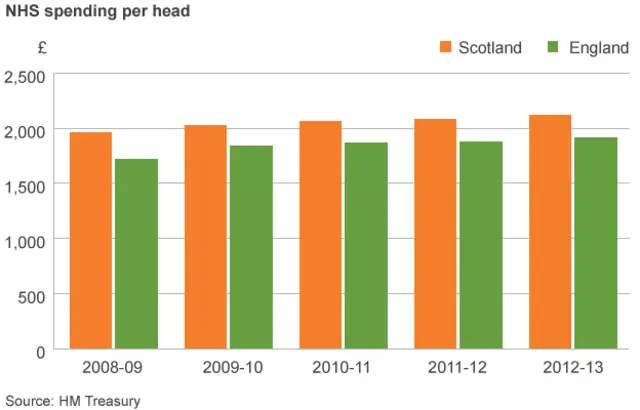
 Emily Craig
Emily Craig
Political analyst, BBC News
Alex Salmond has been talking about trade. He says the UK is Scotland's biggest export market and Scotland is the second largest market for the rest of the UK.
The figures back him up. Scottish government statistics, external suggest 65% of Scottish exports were destined for the rest of the UK in 2012. (That's excluding oil and gas, which is counted as a UK export.)
Meanwhile the UK Treasury says Scotland is second biggest market for the rest of the UK, after the United States.
Deputy First Minister Nicola Sturgeon, external: Alistair Darling - 'Of course we can use the £' #bbcindyref
Scottish Conservatives leader Ruth Davidson, external: I hope an iScotland can play football like Argentina. If it defaults on its debt, it'll have a credit rating like Argentina too. #bbcindyref
Mr Salmond says Scotland will take a fair share of the UK debt if it gets a currency union.
Mr Darling is asked what he would choose as "plan B". He refuses to choose one. He says the current arrangement with the pound sterling within the UK is the best option.
Mr Salmond asks if the people of Scotland back the plan to keep the pound sterling would Mr Darling accept that?
Mr Darling says the pound sterling only works if you have a political and monetary union.
The Scottish first minister says that if Scotland is denied the assets of the Bank of England, it will be denied the liabilities. Scotland will not have to pay about £5bn to service the current debt, he says.
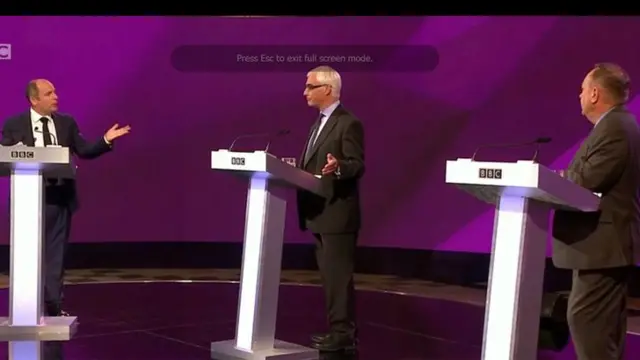
Mr Darling denies that Scotland will lose its liabilities for UK debt if it does not get a currency union. But Mr Salmond says the UK Treasury has admitted liability for the debt.
Lynne Brown, external: I appreciate apprehension re currency but should we trust Darling? He was involved in running the show when the banks crashed #bbcindyref
Nick Turner, external: This mandate Salmond keeps mentioning is gibberish. #bbcindyref
Iain Nelson, external: 68% of people in England against a currency union with Scotland. That's about as popular as joining the Euro. #bbcindyref
Clare Clarke, external: Salmond is the better orator once again. #bbcindyref #ScotlandDecides #ScotDecides
STV's Claire Stewart, external: I feel quite sorry for Panama!
 Andrew Black
Andrew Black
Political reporter, BBC Scotland
The debate gets straight into currency, one of the biggest issues in this campaign. Again we hear the argument from Mr Salmond that an independent Scotland is perfectly entitled to use the pound. Mr Darling says the Scottish government's preferred currency union deal won't work.
Mr Salmond said he was seeking a "mandate" (a word he has used a few times already tonight) to keep the pound sterling in a currency union. He says he would not go into a negotiation with something that was "second best".
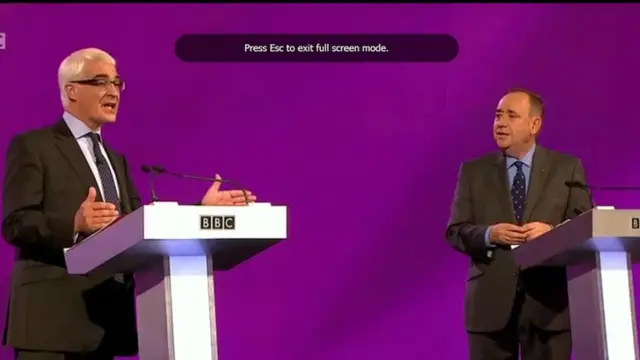
Mr Darling says a currency union would be bad for Scotland because the country's budget would have to be approved by what would be a foreign country. The Better Together leader is back to asking Mr Salmond what his plan B is on the currency.
 Emily Craig
Emily Craig
Political analyst, BBC News
Alistair Darling says UK revenues from North Sea oil and gas are "volatile" and were £5bn less than expected last year.
Scottish government statistics, external show there was indeed a drop in UK revenue of around £4.4bn - from £10bn to £5.6bn. As Mr Darling says, £4.4bn is around half of the annual Scottish health budget, external.
 Louise Sayers
Louise Sayers
BBC Scotland
From the get-go voters James Bream, George Paterson and Maureen Paterson have been taking notes...
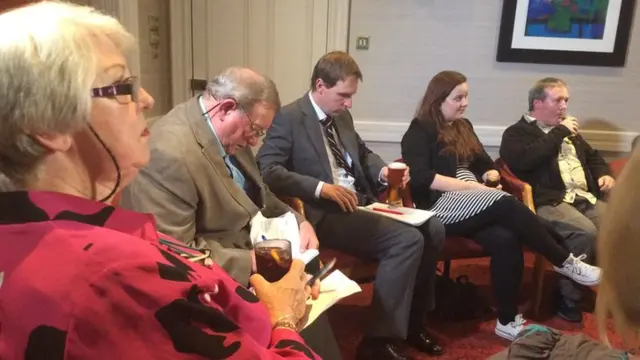
Second question.
"What currency will use if we don't use sterling?"
The audience member, Kathy, wants a "definitive" answer